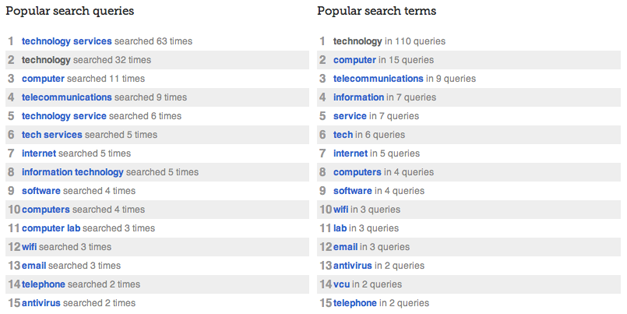Do you ever wonder why certain websites show up first when you search for something on Google? Have you ever thought about how search engines decide which websites to rank higher than others? Well, one of the key factors is keywords.
Keywords are the words and phrases that users enter into search engines when they are looking for information. It’s like a secret code that helps search engines understand what your website or content is all about.
In this article, we will delve into the power of keywords and how they can significantly impact the visibility and success of your website. We’ll discuss why keyword research is crucial, how to choose the right keywords, and how to optimize your website for better search engine rankings. By the end of this article, you’ll have a better grasp of the power of keywords and how you can leverage them to your advantage. So, let’s get started! The Power of Keywords
Keywords play a crucial role in digital marketing. They are the foundation upon which successful online campaigns are built. Whether you are trying to improve your search engine rankings, attract more website traffic, or increase conversions, having a solid keyword strategy is essential. In this article, we will explore the importance of keywords in digital marketing and discuss how they impact SEO, pay-per-click advertising, social media marketing, and more.

This image is property of thedigitaldopeman.com.
What are Keywords?
Keywords are words or phrases that users type into search engines when looking for information or products online. They are the driving force behind the search engine optimization (SEO) process and help search engines understand what your website is all about. For example, if someone is looking for a recipe for chocolate chip cookies, they might type in the keywords “chocolate chip cookies recipe” or “how to make chocolate chip cookies.”
Why are Keywords important in Digital Marketing?
Keywords are important in digital marketing for several reasons. Firstly, they help improve your website’s visibility in search engine results pages (SERPs). When you optimize your website with relevant keywords, search engines are more likely to rank your website higher, making it easier for users to find you. Secondly, keywords attract targeted traffic to your website. By using the right keywords, you can attract users who are actively searching for what you have to offer. Lastly, keywords help improve the relevance and quality of your website content. By incorporating keywords naturally into your content, you can provide valuable information to your audience while also signaling to search engines that your website is authoritative and trustworthy.
How do Keywords impact SEO?
Keywords have a significant impact on SEO. They help search engines understand what your website is about and determine its relevance to specific search queries. When you incorporate keywords into your website’s content, meta tags, and descriptions, search engines can crawl and index your website more effectively. This, in turn, improves your website’s visibility and ranking on SERPs. However, it is important to use keywords strategically and avoid keyword stuffing, as search engines can penalize websites that employ such tactics.
Using Keywords in Pay-per-click Advertising
Pay-per-click (PPC) advertising is another area where keywords play a vital role. In PPC campaigns, advertisers bid on specific keywords to display their ads when users search for those keywords. By choosing the right keywords and optimizing your PPC campaigns accordingly, you can drive targeted traffic to your website and increase your chances of conversions. It is crucial to conduct thorough keyword research to identify the most relevant and high-performing keywords for your advertising campaigns.

This image is property of ishiphopdead.com.
The Role of Keywords in Social Media Marketing
Keywords are also essential in social media marketing. Social media platforms use algorithms to display content to users based on their interests and preferences. By incorporating relevant keywords into your social media posts, you can increase the visibility and reach of your content. This, in turn, can help attract more followers, likes, shares, and ultimately drive more traffic to your website. Additionally, using hashtags that include keywords can help users discover your content when searching or browsing on social media platforms.
Keyword Research and Analysis
Understanding the Basics of Keyword Research
Keyword research is the process of identifying the most relevant and high-performing keywords for your digital marketing campaigns. It involves analyzing search volume, competition, and relevancy to your business. By conducting thorough keyword research, you can uncover valuable insights about your target audience and their search behavior. This, in turn, can help you optimize your website, content, and advertising campaigns to better meet their needs and expectations.
Choosing the Right Keywords for your Business
Choosing the right keywords for your business is crucial. You want to select keywords that are relevant to your products or services and have a decent search volume. However, it is also important to consider the level of competition for those keywords. Highly competitive keywords may be difficult to rank for, especially if your website is new or lacks authority. Instead, consider targeting long-tail keywords, which are more specific and have a lower competition level. Long-tail keywords tend to attract more targeted traffic and have a higher chance of conversion.
Tools and Strategies for Keyword Analysis
There are several tools and strategies available for keyword analysis. Google Keyword Planner is a popular tool that provides insights into keyword search volume, competition, and related keywords. Other tools like SEMrush and Ahrefs allow you to conduct in-depth keyword research and competitor analysis. Additionally, analyzing your website analytics data can provide valuable insights into the actual keywords that are driving traffic to your site.
Long-tail Keywords and their Benefits
Long-tail keywords are longer and more specific phrases that are typically used by users who are further along in the buying process. While they may have a lower search volume compared to broad keywords, they often attract more targeted traffic and have a higher chance of conversion. For example, someone searching for “black leather jacket for women” is more likely to make a purchase than someone searching for “jacket.” Incorporating long-tail keywords into your content and advertising campaigns can help you reach a more qualified audience and increase your chances of success.

This image is property of straussconsultants.com.
Optimizing Website Content with Keywords
Writing SEO-friendly Content
Writing SEO-friendly content involves incorporating relevant keywords into your website’s pages, blog posts, and other content. However, it is important to strike a balance between optimizing for keywords and creating engaging and valuable content for your audience. Avoid keyword stuffing and focus on providing valuable information that satisfies the user’s search intent. Search engines reward websites that provide high-quality content that matches user expectations.
Keyword Placement and Density
Keyword placement and density are important factors to consider when optimizing your website content. It is recommended to include keywords in the page title, meta description, headings, and throughout the body of your content. However, be sure to use them naturally and avoid overusing them. Keyword density, which refers to the percentage of keywords compared to the total word count, should typically be between 1-3% to avoid keyword stuffing.
Creating Engaging Meta Tags and Descriptions
Meta tags and descriptions are HTML elements that provide information about your web page to search engines and users. They should include relevant keywords and provide a concise and accurate summary of your content. Meta tags and descriptions play a crucial role in attracting clicks from search engine users, so it is important to make them compelling and engaging.
Optimizing Images with Keywords
Optimizing images with keywords is another important aspect of website optimization. When you upload images to your website, it is essential to include descriptive file names and alt tags that contain relevant keywords. This helps search engines understand what the image is about and can improve your website’s visibility in image search results.
Local SEO and Keywords
Using Location-based Keywords to Improve Local Search Rankings
Local SEO involves optimizing your website and online presence to appear in local search results. Location-based keywords play a crucial role in improving your local search rankings. For example, if you own a restaurant in New York City, incorporating keywords like “best restaurants in NYC” or “New York City dining” can help your website appear in search results when users in that area are looking for dining options.
The Impact of keywords on Google My Business
Google My Business is a free tool provided by Google that allows businesses to manage their online presence. Keywords can play a significant role in optimizing your Google My Business listing. By incorporating relevant keywords into your business description, services, and posts, you can improve your chances of appearing in local search results and attracting more customers.
Optimizing Business Listings with Relevant Keywords
In addition to Google My Business, there are various online directories and review platforms where businesses can list their information. Optimizing these business listings with relevant keywords can help improve your local search visibility and attract more customers. Be sure to include keywords in your business name, description, and categories where applicable.

This image is property of ts.vcu.edu.
Mobile Optimization and Keywords
The Importance of Mobile-friendly Websites
In today’s digital landscape, having a mobile-friendly website is crucial. With the increasing use of smartphones and tablets, users are accessing the internet more often on mobile devices. Search engines prioritize mobile-friendly websites in mobile search results, so optimizing your site for mobile devices can improve your search visibility and user experience.
Mobile SEO and Keyword Optimization
Mobile SEO involves optimizing your website and content specifically for mobile devices. This includes using responsive design, ensuring fast page loading speed, and optimizing your mobile content with relevant keywords. Mobile users often have specific search intents and may use different keywords compared to desktop users. Therefore, it is important to conduct keyword research specifically for mobile searches and adjust your optimization strategies accordingly.
Using Voice Search and Conversational Keywords
With the rise of voice assistants and smart speakers, voice search is becoming increasingly popular. Users tend to use more conversational and long-tail keywords when performing voice searches. In order to optimize your website for voice search, include conversational keywords in your content and adapt your optimization strategies to match these search patterns.
Mobile App Store Optimization
For businesses with mobile applications, optimizing your app listing in the app store is essential. Keywords play a key role in app store optimization (ASO), as they help your app appear in search results when users are looking for specific types of apps. Conducting keyword research specific to the app store and utilizing relevant keywords in your app title, description, and tags can improve your app’s visibility and attract more downloads.
Tracking and Measuring Keyword Performance
Google Analytics and Keyword Tracking
Google Analytics is a powerful tool that can help you track and measure the performance of your keywords. By setting up goals and implementing proper tracking, you can gain valuable insights into which keywords are driving traffic, conversions, and revenue to your website. This data can help you refine your keyword strategy and make data-driven decisions to improve your digital marketing campaigns.
Evaluating the Success of Keyword Campaigns
Evaluating the success of your keyword campaigns is essential to measure their effectiveness and make necessary adjustments. This involves analyzing various metrics such as search engine rankings, organic traffic, conversions, and ROI. By regularly monitoring and evaluating the performance of your keyword campaigns, you can identify what is working and what needs improvement.
Refining Keyword Strategies based on Analytics Data
Analytics data can provide valuable insights into keyword performance and user behavior. By analyzing this data, you can refine your keyword strategies to better meet the needs and expectations of your target audience. For example, if you notice that a specific keyword is driving a significant amount of traffic but has a low conversion rate, you may need to optimize your landing page or adjust your targeting to attract more qualified traffic.

This image is property of blogger.googleusercontent.com.
Adapting to Search Engine Algorithm Updates
Understanding Google Algorithm Updates
Search engines like Google regularly update their algorithms to provide users with the most relevant and high-quality search results. These algorithm updates can have a significant impact on keyword rankings and organic search visibility. It is important to stay informed about major algorithm updates and adjust your keyword strategies accordingly to maintain or improve your rankings.
The Impact of Algorithm Changes on Keyword Rankings
Algorithm changes can often lead to fluctuations in keyword rankings. Certain keywords that used to rank well may suddenly drop in rankings due to algorithm updates. It is important to closely monitor your keyword rankings and make necessary adjustments to your optimization strategies if you notice significant changes. This may involve conducting additional keyword research, improving your website’s content, or adjusting your targeting and optimization efforts.
Tips for Adjusting Keyword Strategies
When faced with algorithm changes, there are several strategies you can employ to adapt your keyword strategies. First, stay up-to-date with industry news and search engine guidelines to understand the changes and their implications. Second, conduct thorough keyword research to identify new opportunities and keywords that align with the updated algorithm. Third, analyze your website analytics data to identify underperforming keywords and make necessary adjustments to improve their rankings.
Maintaining Keyword Relevance and Adaptability
In a constantly evolving digital landscape, it is important to maintain keyword relevance and adaptability. Regularly evaluate your keyword strategies and optimize your website and content to ensure they align with the latest trends and search behavior. By staying relevant and adaptable, you can maintain or improve your keyword rankings and attract more targeted traffic to your website.
Keyword Trends and Forecasting
Monitoring Keyword Trends and Industry Changes
Monitoring keyword trends and industry changes is crucial to stay ahead of the competition and adapt your keyword strategies accordingly. By staying informed about the latest trends, you can identify emerging keywords and search patterns that could benefit your digital marketing campaigns. Additionally, monitoring industry changes can help you identify new opportunities and adjust your strategy to better meet the evolving needs of your target audience.
Using Forecasting Tools for Future Keyword Strategies
Forecasting tools can help you predict future keyword trends and shape your keyword strategies accordingly. These tools analyze historical data, search volume, and trends to provide insights into future search behavior and keywords. By leveraging these tools, you can stay ahead of the curve and proactively adjust your keyword strategies to capitalize on emerging opportunities.
The Future of Keywords in Digital Marketing
Artificial Intelligence and Keyword Analysis
The future of keywords in digital marketing is closely tied to the evolution of artificial intelligence (AI). AI technologies enable more advanced and accurate keyword analysis, allowing marketers to better understand user intent and deliver more personalized search results. As AI continues to advance, keyword analysis will become more sophisticated and provide even deeper insights into user behavior and preferences.
Voice Search and Natural Language Processing
Voice search is rapidly gaining popularity, thanks to advancements in natural language processing (NLP) and voice recognition technologies. Users tend to use longer, more conversational queries when performing voice searches. This shift in search behavior requires marketers to adapt their keyword strategies and optimize their content and advertising campaigns for voice search. Voice search will continue to shape the future of keywords, and marketers must be prepared to adapt to this emerging trend.
The Evolving Role of Keywords in a Changing Digital Landscape
As the digital landscape continues to evolve, the role of keywords is also changing. While keywords will remain a fundamental element of digital marketing, their importance will be increasingly tied to user intent, context, and semantics. Search engines are becoming more sophisticated in understanding natural language and user behavior, allowing them to deliver more relevant search results. Marketers must adapt their keyword strategies to focus on providing valuable and relevant content that satisfies user needs, rather than simply targeting specific keywords.
Conclusion
In conclusion, keywords play a crucial role in digital marketing. They are the key to improving your website’s visibility, driving targeted traffic, and increasing conversions. By conducting thorough keyword research, optimizing your website content, and adapting to the ever-changing digital landscape, you can harness the power of keywords to enhance your digital marketing efforts. Stay vigilant, monitor keyword trends, and constantly refine your keyword strategies to stay ahead of the competition and achieve long-term success in the online world.

